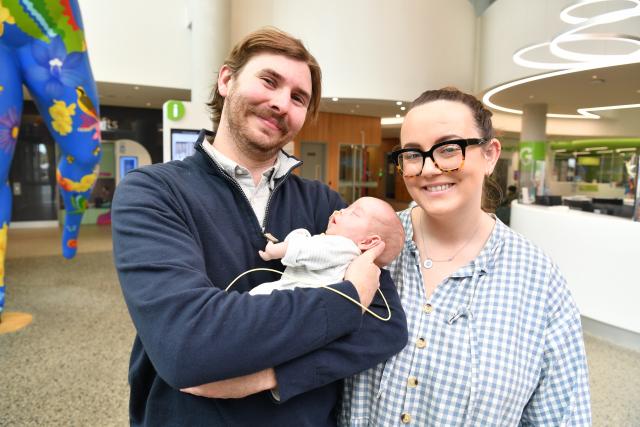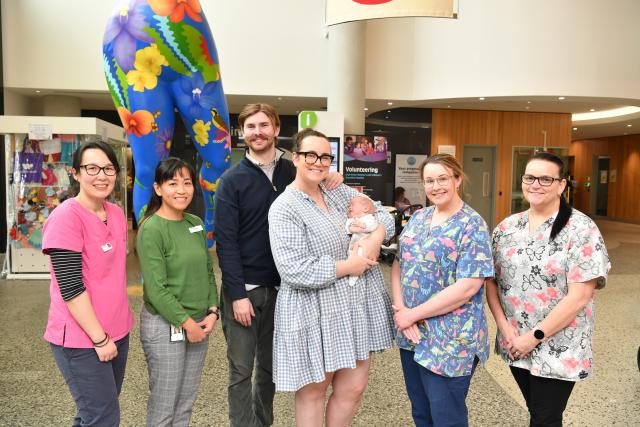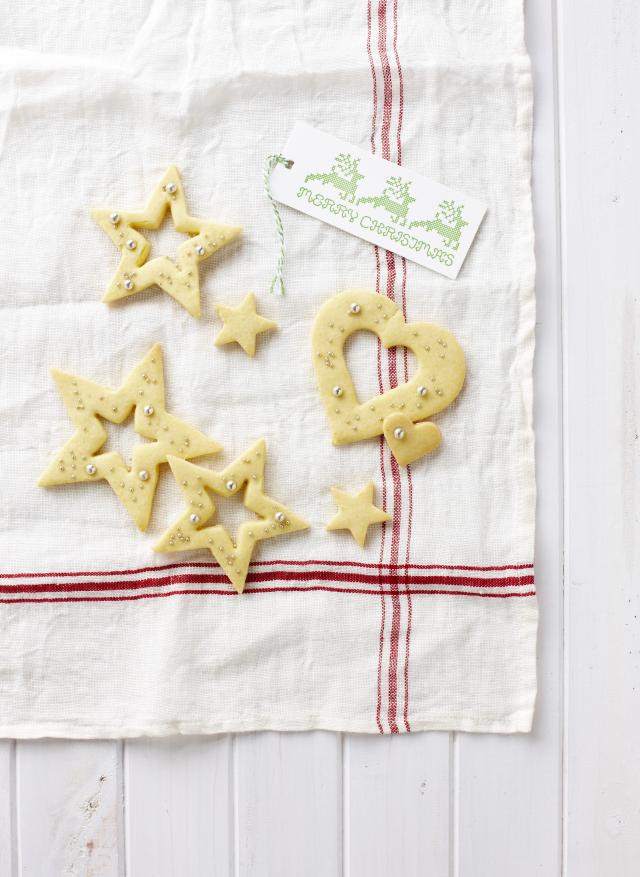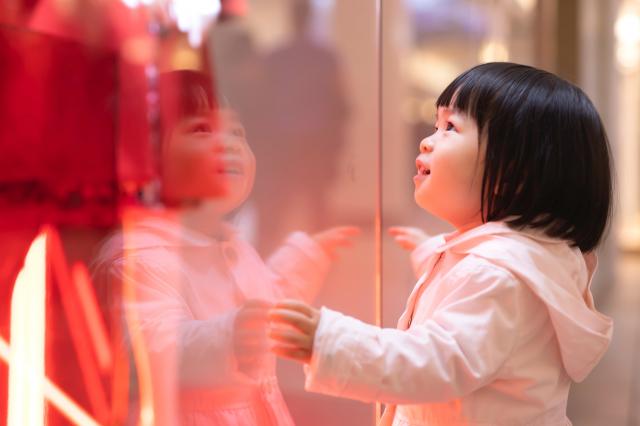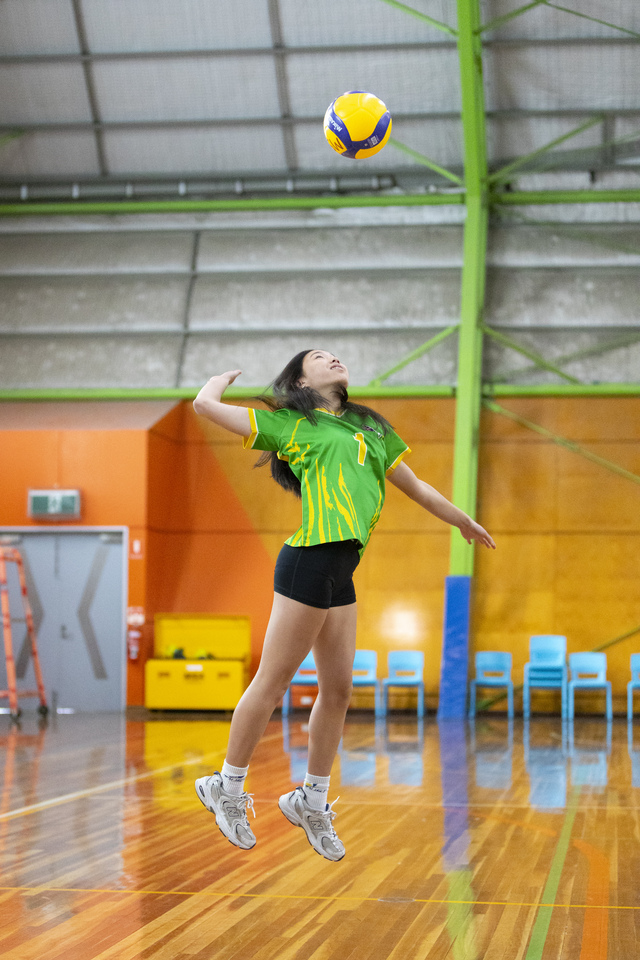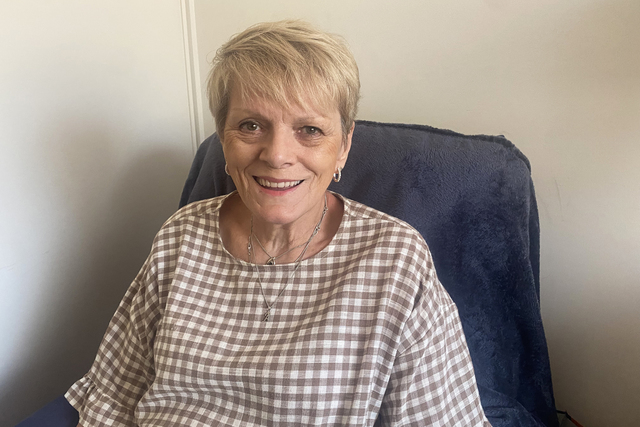Welcoming a child is meant to be one of the most exciting things in the world , but for Rebecca Harris and Alistair Woodard it was anything but as Tara Murray reports.
After a tough pregnancy, Rebecca delivered baby Daisy at just 27 weeks at the Joan Kirner Women’s and Children’s at Sunshine Hospital on May 10.
At 475 grams, Daisy is the smallest baby born at the hospital.
Daisy would spend the next three months at the hospital and her and her parents have been frequent visitors ever since.
“I didn’t have the best pregnancy, I was quite sick, I had hyperemesis,” recalls Rebecca.
“We found out that Daisy was going to be small, we knew she had a condition called IUGR, which is intrauterine growth restriction.
“So we knew she was going to be born small and then one weekend I started feeling sick, I ended up in hospital with preeclampsia and then three days later she was born.”
While expecting Daisy to be small, the pair thought she would be at least 500 grams.
Rebecca, a nurse herself, said how small Daisy was wasn’t something they expected.
“It was really confronting, she was tiny,“ she said.
“She could fit in your hand. But she’s doing really well, she’s 2.7 kilos now.
“It sort of happened all of a sudden, so I was on like a monitor and you could see that she was having dips in her heart rate, and it all happened all at once.
“We were rushed down to have a caesarean and I was feeling very overwhelmed and scared but everyone there was so supportive and the staff were just so lovely. It honestly made it so that you can deal with a bad situation, all the people were so lovely. “
Alistair said it felt like they just copped everything through the pregnancy.
Home for the next three months would be Joan Kirner Women’s and Children’s at Sunshine Hospital, starting with the NICU ward.
Both Alistair and Rebecca said it felt more like a brief home away from home.
“We always felt welcomed there, we were able to go in anytime,” said Alistair. “The nurses were so friendly.”
Rebecca added, “We spent three months in the NICU, and honestly the staff made me feel so comfortable.
“We felt welcomed there, we were able to go in anytime. They really became like a second family. They became like my friends in a way.
“Everybody knew Daisy, because she’d started at the NICU… the nurses would pop in and see her and they’d be like ‘how’s Daisy going?’”
Daisy quickly became famous at the hospital firstly because of her size and then as she was so healthy as well. That was the most astounding thing, everyone was shocked at how she thrived.
Being at the hospital however, eventually took at toll on her parents.
“We got frustrated I guess towards the end, but that was just our own impatience of wanting to get her home,” Alistair said.
“Of course, the hospital wouldn’t let us take her home until they felt comfortable that she was in a good place. And of course, in the end, it was the best decision.
“She’s come home and she hasn’t had any issues being home.“
Both Rebecca and Alistair highlighted supportive staff at the hospital had been during their stay.
Consultant neonatologist Dr Gillian Foo, who was one of Daisy’s doctors, said for the staff it’s about making sure the whole family is being looked after.
“You change lives in one of the hardest times in a family’s journey,” she said. “Things change so quickly.
“You’re on the journey with them. The babies grow in the intensive ward unit and then follow them with check- ups.
“It’s a vulnerable time in their lives and it’s a shared experience that not many people understand.
“I think it’s one of the most rewarding specialties.”
Dr Foo said when families return to the hospital many of them call the nurses and doctors ‘aunties and uncles’ as they’ve become part of the family.
When Daisy left the NICU, Dr Foo’s daughters had a special parting gift for her.
“We like to acknowledge how hard it has been for the family,” Dr Foo said. “We like to have graduation ceremonies and it was only fitting to have a graduation hat.
“It’s great that my family gets to see the work I do and the families know that we do care.”
Once babies like Daisy leave the NICU there is still plenty of support for the families and services available.
Daisy still has a feeding tube so requires assistance from dietitians and the nutrition team. There’s speech therapists for the children and mental health support for the parents the whole way through.
Dr Foo said they wouldn’t be able to do the work they do without the support of the community.
“We have a very diverse population in the west,” she said. “We try and cater for a large range of cultural needs.”
Now with baby Daisy at home, Rebecca and Alistair are adjusting to life as new parents.
Both said the biggest advice for any parents in the same situation is to lean on all the support that is available through the NICU and other organisations like Life’s Little Treasures and Miracle Babies.
They said also make sure you also take care of yourself.
Rebecca thanked the hospital team, saying they wouldn’t be where they are without them.
Both are now enjoying life at home with Daisy, who still has a feeding tube as she doesn’t have the ability to take full bottles.
“I think the biggest challenge was just having to let go in a way for me,” Rebecca said. “I’m very structured and I like to know what’s going to happen next.
“But in this regard, I had to let Daisy do her thing, grow when she needs to grow. You don’t really know what’s coming next.
“Of course we got to know her little personality while she was in the hospital, but then bringing her home she definitely turned into a different baby.”
Alistair added, “It’s so good that we still go back to John Kirner as well. So we get to see the same doctors that looked after her on the ward. The continuity has been great.“
To donate to the Western Health’s NICU ward: give.whfoundation.org.au/donate-now

